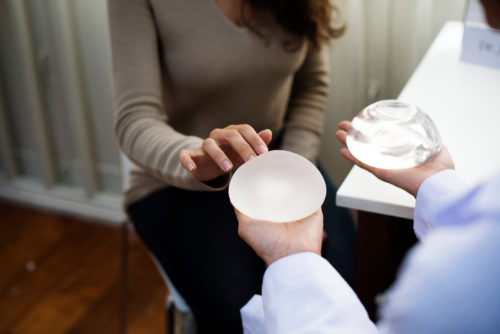Outrage of the Month: FDA Ban of Breast Implants Linked to Cancer Comes Too Late for Many Women
Health Letter, September 2019
By Michael Carome, M.D.

If you’re not outraged,
you’re not paying attention!
Read what Public Citizen has to say about the biggest blunders and outrageous offenses in the world of public health, published monthly in Health Letter.

On July 24, the Food and Drug Administration (FDA) finally asked Allergan to recall its BIOCELL textured breast implants because the products had been found to increase the risk of a rare form of cancer involving cells of the immune system known as breast implant-associated anaplastic large cell lymphoma (ALCL). Allergan agreed to the agency’s request and is withdrawing these products from the global market.
Although the FDA’s action was welcome news, it came too late for many women who received the Allergan Biocell breast implants well after sufficient evidence was available to the FDA about the risk of developing breast implant-associated ALCL to warrant a recall. Notably, the FDA’s action lagged far behind actions taken by regulators in other countries to suspend marketing of these products. Such reckless delays by the FDA in responding to red flags about safety problems with medical devices and drugs are all too common.
The FDA first identified a potential link between breast implants and the development of ALCL in January 2011. At that time, the agency reported that it was aware of approximately 60 cases of ALCL in women with breast implants throughout the world based on a review of the scientific literature and reports submitted to the FDA’s Adverse Event Reporting System, as well as communications with regulators in other countries, scientific experts and breast implant manufacturers.
The agency noted in 2011 that although the number of ALCL cases in women with breast implants was very low, it was higher than expected based on cancer-rate data from the National Cancer Institute. Importantly, the cases seemed to have followed a consistent pattern in which the tumors occurred in the fluid and scar tissue surrounding the breast implants and had similar findings on microscopic examination. Among the 20 patients for whom treatment had been reported, most had had their implants removed, and some subsequently had received treatment with radiation, chemotherapy or both.
The FDA concluded in 2011 that it was not possible to confirm “with statistical certainty” that breast implants cause ALCL. The agency further concluded that there was insufficient information to determine whether a specific type of implant was associated with a greater risk of ALCL. However, they noted one published study that showed that ALCL was found more frequently in patients who had received implants with a textured (bumpy) outer surface rather than a smooth outer surface.
After the FDA’s 2011 assessment, the number of reported cases of breast implant-associated ALCL surged, and by 2016, the World Health Organization had designated this immune system cancer as a type of lymphoma that can develop in patients with breast implants. In a summary prepared for a March 2019 meeting of a medical device advisory committee, the FDA stated that it had received reports of 457 distinct cases of breast implant-associated ALCL, including nine patient deaths. Of the 334 cases for which the implant surface was described, 310 (93%) had a textured surface, and only 24 had a smooth surface.
Notably, in December 2018, sales of Allergan’s Biocell textured breast implants were effectively blocked in Europe when the company was unable to renew required European safety certifications, known as CE marks, because of concerns raised by the hundreds of reported cases of breast implant-associated ALCL. The New York Times reported that on April 5 regulators in France formally banned textured breast implants for the same reasons.
Likewise, on April 4, Health Canada, an agency similar to the FDA, announced that it intended to suspend marketing of Allergan’s Biocell textured breast implants as a precautionary measure given the risk of breast implant-associated ALCL. The Canadian ban took effect on May 28.
By the time the FDA belatedly asked Allergan to voluntarily recall its Biocell textured breast implants in late July, agency scientists had identified 573 unique cases of breast implant-associated ALCL, including 33 patients deaths.
When it comes to protecting public health in the face of warning signs of new serious risks of medical devices and drugs, “statistical certainty” of a causal association should not be the threshold for acting to protect patients in the U.S. The agency instead must apply the precautionary principle of public health, like regulators in Europe and Canada did in this case, and move swiftly to protect patients from potential harm, even when there is scientific uncertainty about the available data.